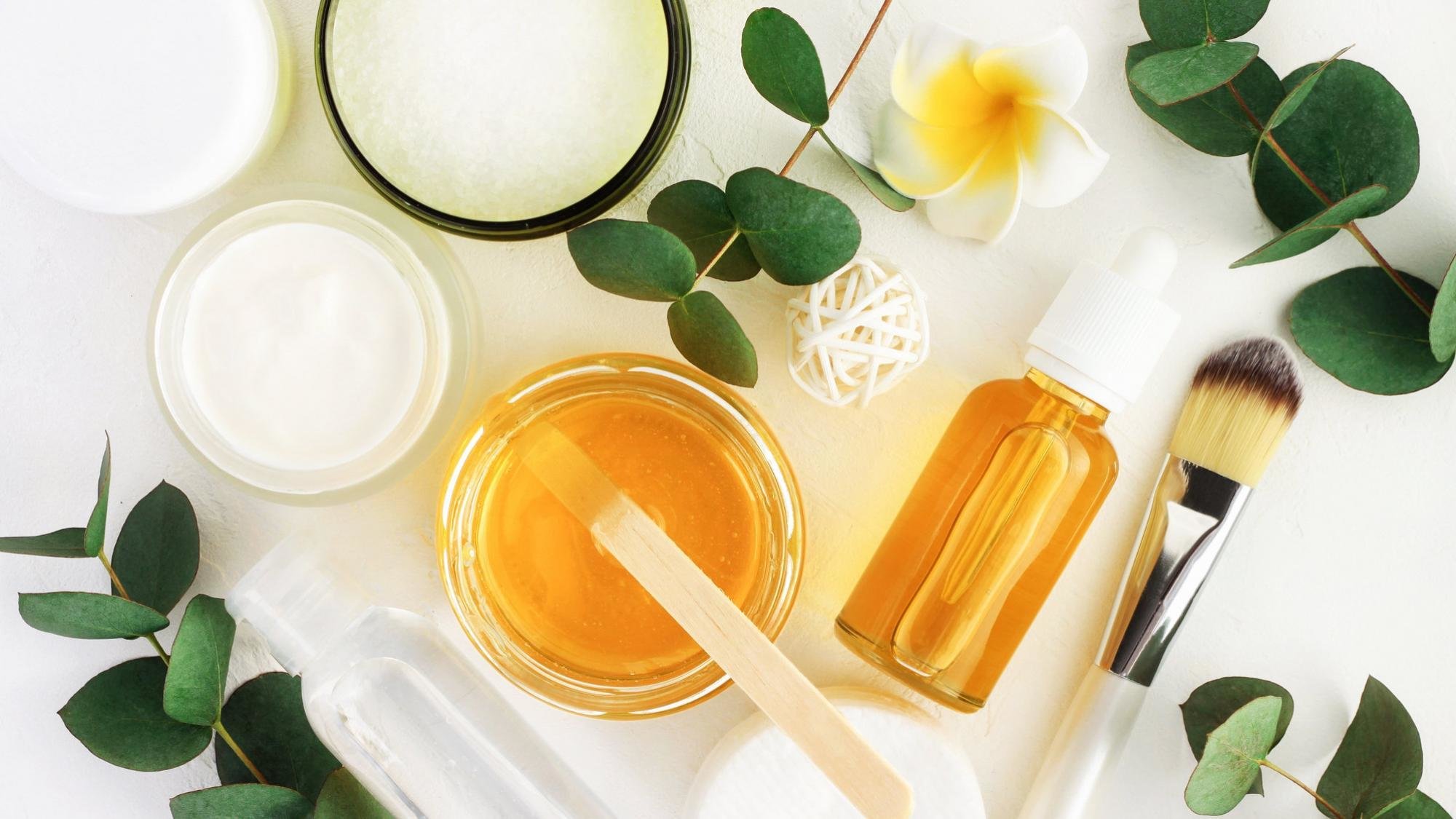
The world of beauty products can be a hard one to navigate. There's so much out there, and no matter how much you read up on a product, you'll never really know if it works until you try it yourself. It doesn't even matter if it's a personal recommendation you got from a friend. What works for one person doesn't always work for the next.
There is one way to improve the chances that what you buy will actually work for you, though: Read the ingredient label. It's a step that many people skip when shopping for cosmetics, but one that's crucial. It's also the easiest way to find out whether the product has an ingredient that you already know clashes with your skin type.
But sometimes even reading the ingredient label can become a nightmare on its own. It can be hard to decipher what all those chemicals and words that are way too hard to pronounce really are.
More from MamásLatinas: Celebrities who have flawless skin & give us major skin goals
There's more good news, though. You can skip out on all these frustrations by making your own cosmetics, and it's really not that hard to do. Cleopatra of ancient Egypt didn't have access to all the beauty products we have today, but legend says that her skin was always silky soft and glowing, thanks to products that were abundant naturally. Sometimes it's better to live closer to the earth, a theme that's common in African skin care. Many believe African skin care has long held the secret to the fountain of youth.
Even when it's not possible to whip up something yourself, look for a product that contains a common ingredient used in African skin care, like marula oil, shea butter, or yangu oil. Read up on which ingredients might help you meet your beauty goals faster. Then it's all about trial and error.
But once you find what's right for you, you won't go back. If you're not sure where to start, don't fret. Skin care and hair care doesn't have to be so complicated. Here are some of the best African beauty secrets you should know about.
Mongongo oil comes from the mongongo nut, which is native to southern parts of Africa.
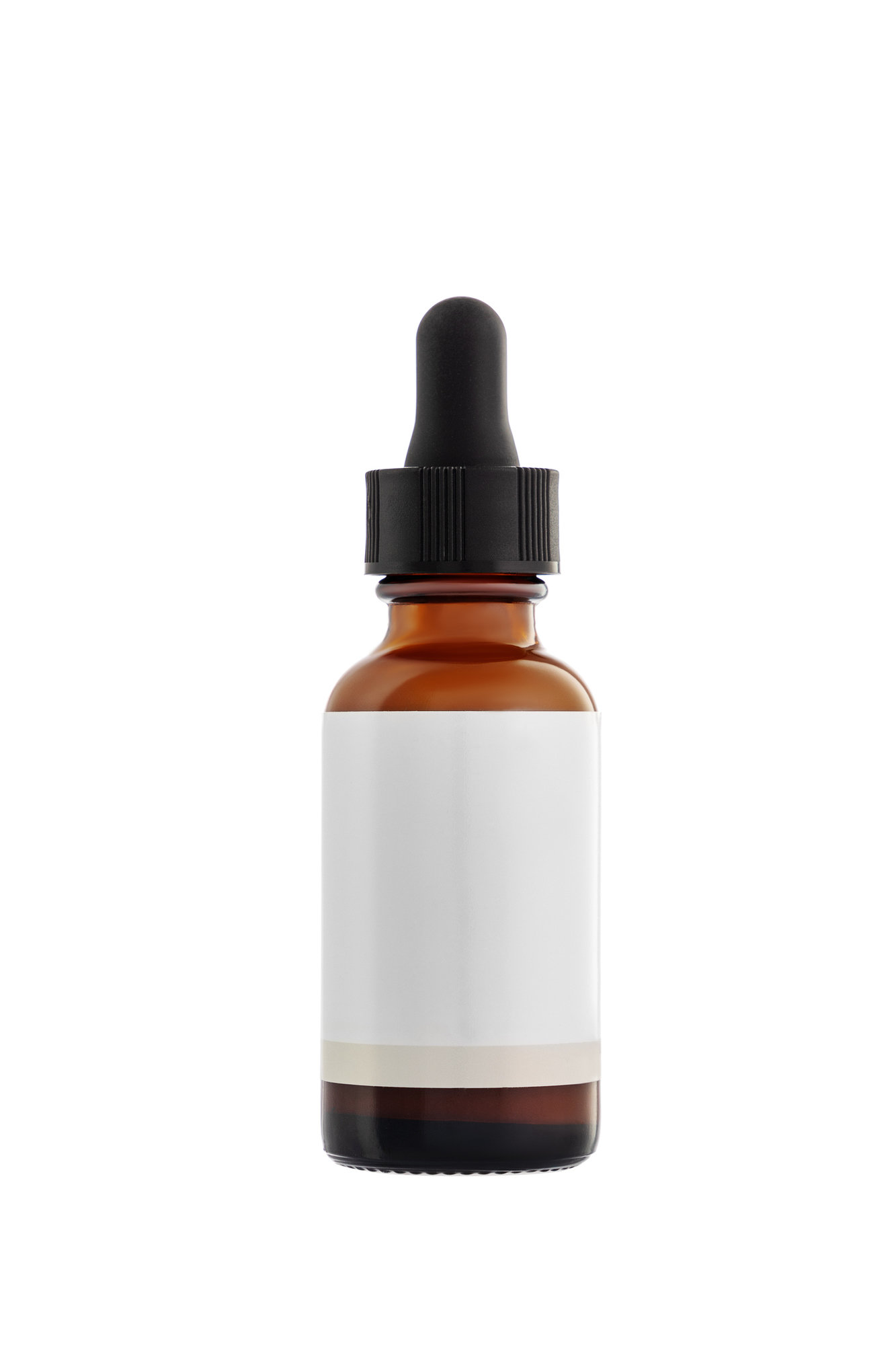
Due to its hydrating and conditioning properties, mongongo oil is a great tool to condition the hair and scalp. It promotes cellular repair and helps protect hair from damage caused by heat and the sun. You might have trouble finding pure mongongo oil, but you can find it infused in products, like the Ouidad Mongongo Oil Multi-Use Curl Treatment, at your local beauty store.
African black soap can help you achieve flawless skin.
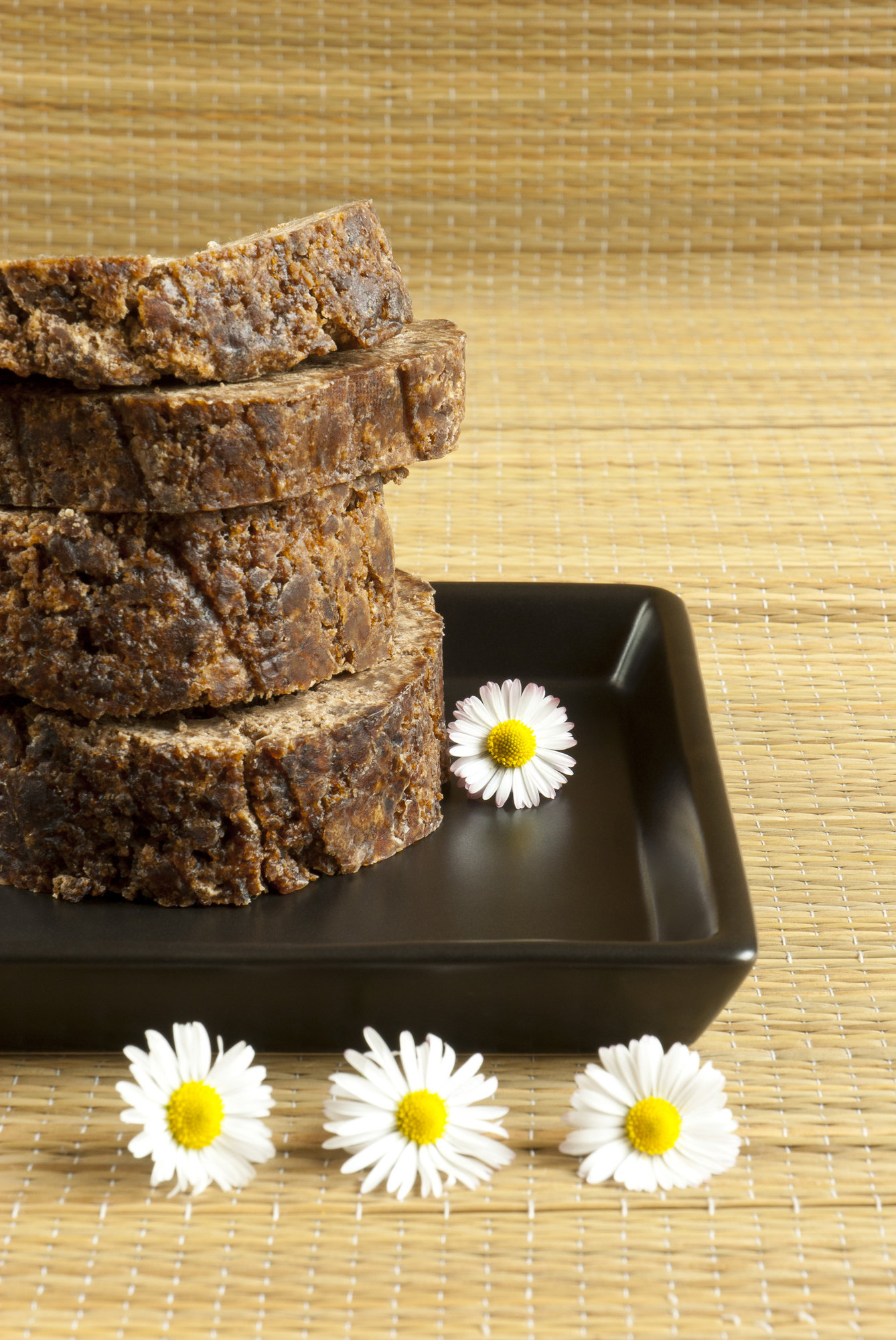
African black soap originated in West Africa and is made from the ash of African plants. The soap can be used to treat breakouts, hyperpigmentation, stretch marks, and other skin conditions. It may be tricky to make African black soap at home, but you can purchase it from fair trade brands like SheaMoisture and Tropical Naturals.
You can combine salt with African black soap to create the ultimate exfoliant.
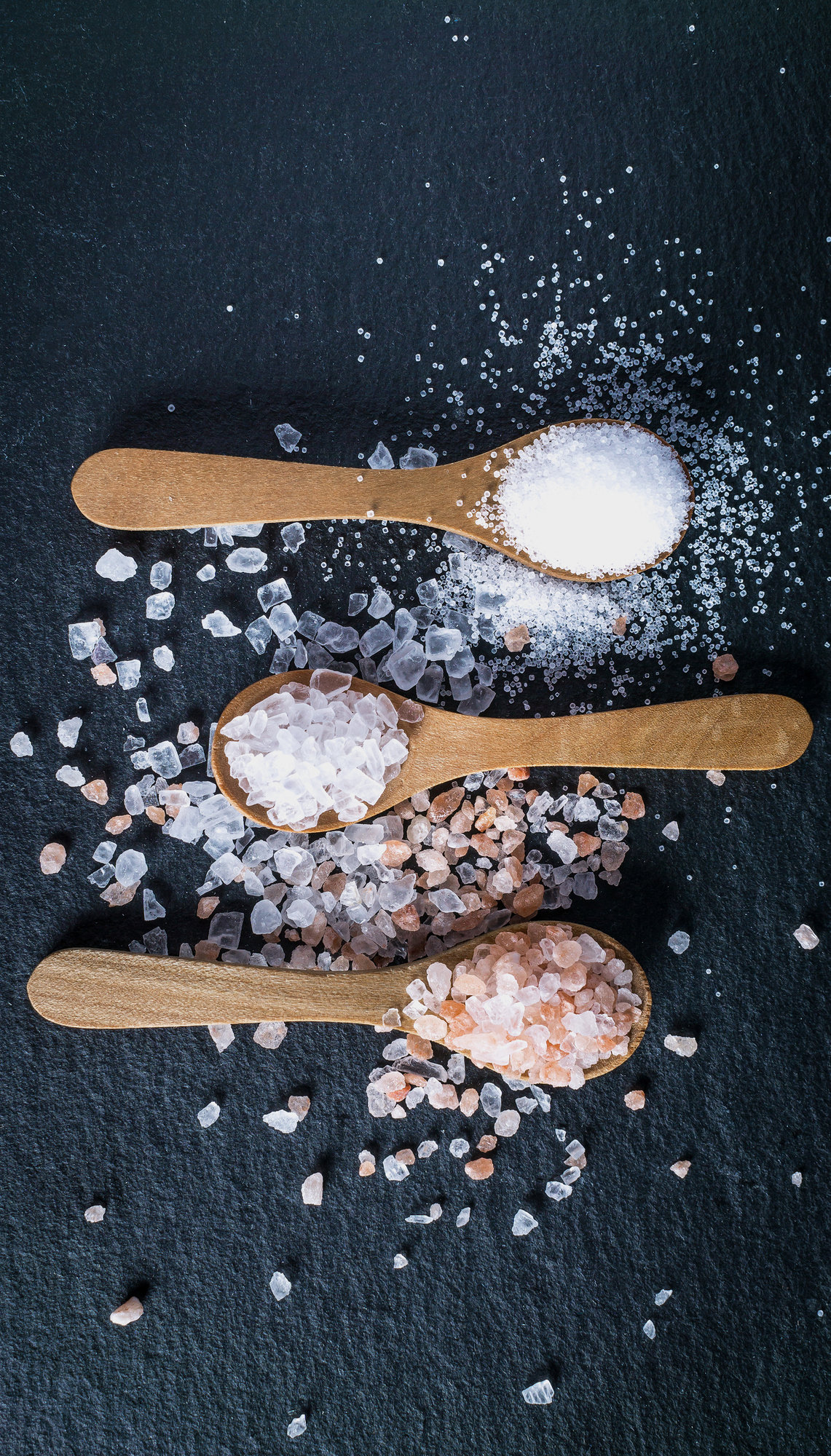
Sea salt, specifically, has anti-inflammatory properties and works as an exfoliant that removes dead skin cells. It can also hydrate and soften your skin. You can create a deep exfoliation treatment by combining black soap, lemon, sea salt, and your favorite essential oil.
See the full recipe at Bellatory.
Applied topically, argan oil can treat skin conditions and reduce the signs of aging.
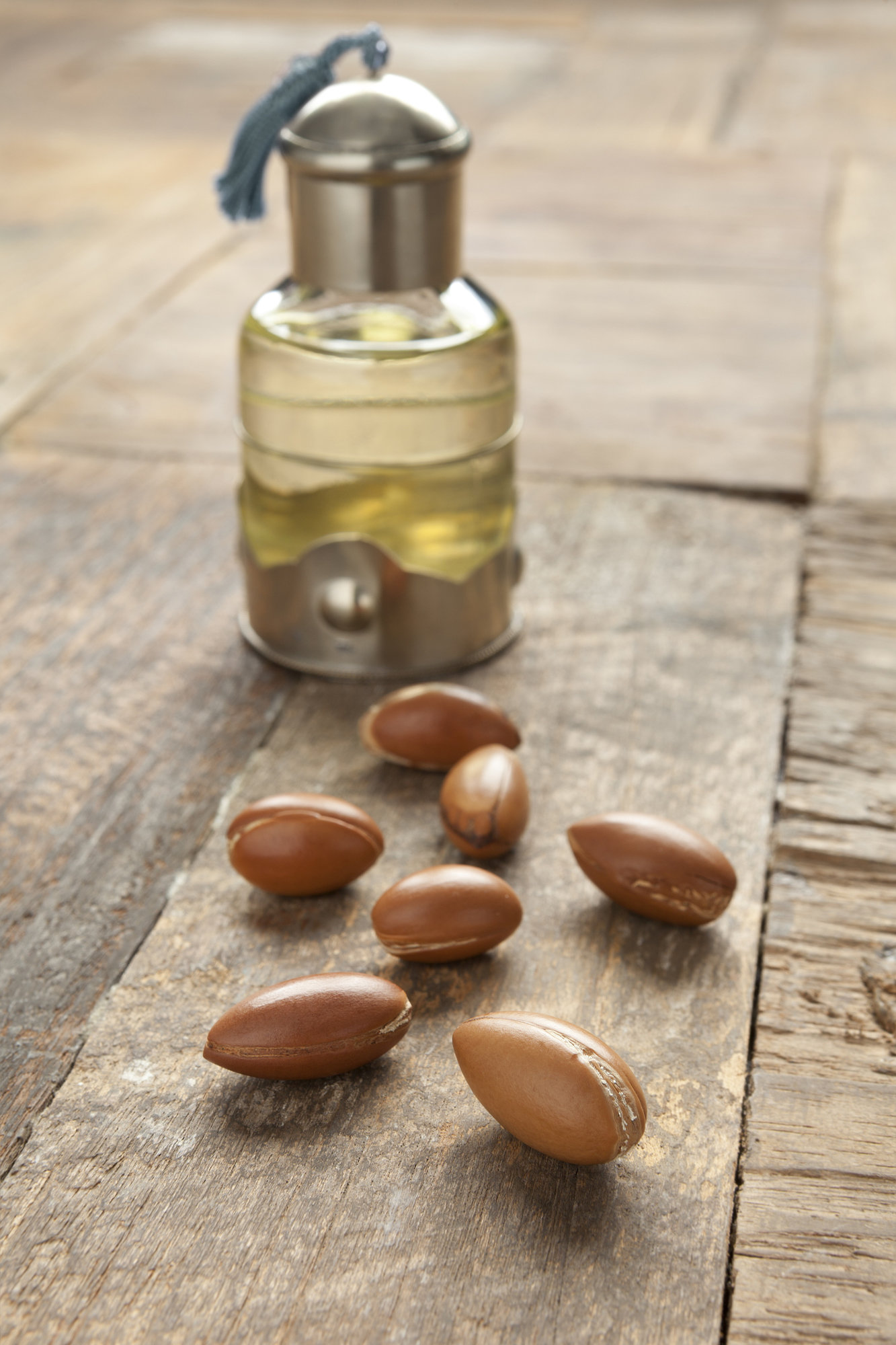
Argan oil is made from the fruit of the argan tree, which typically grows in Morocco. To cook up a natural moisturizer for your skin, mix argan oil with equal parts coconut and jojoba oils. To use it to improve your hair health, add a few drops to your scalp and massage them in.
You can use rhassoul clay to draw out oil, dirt, and other impurities from your skin and hair.
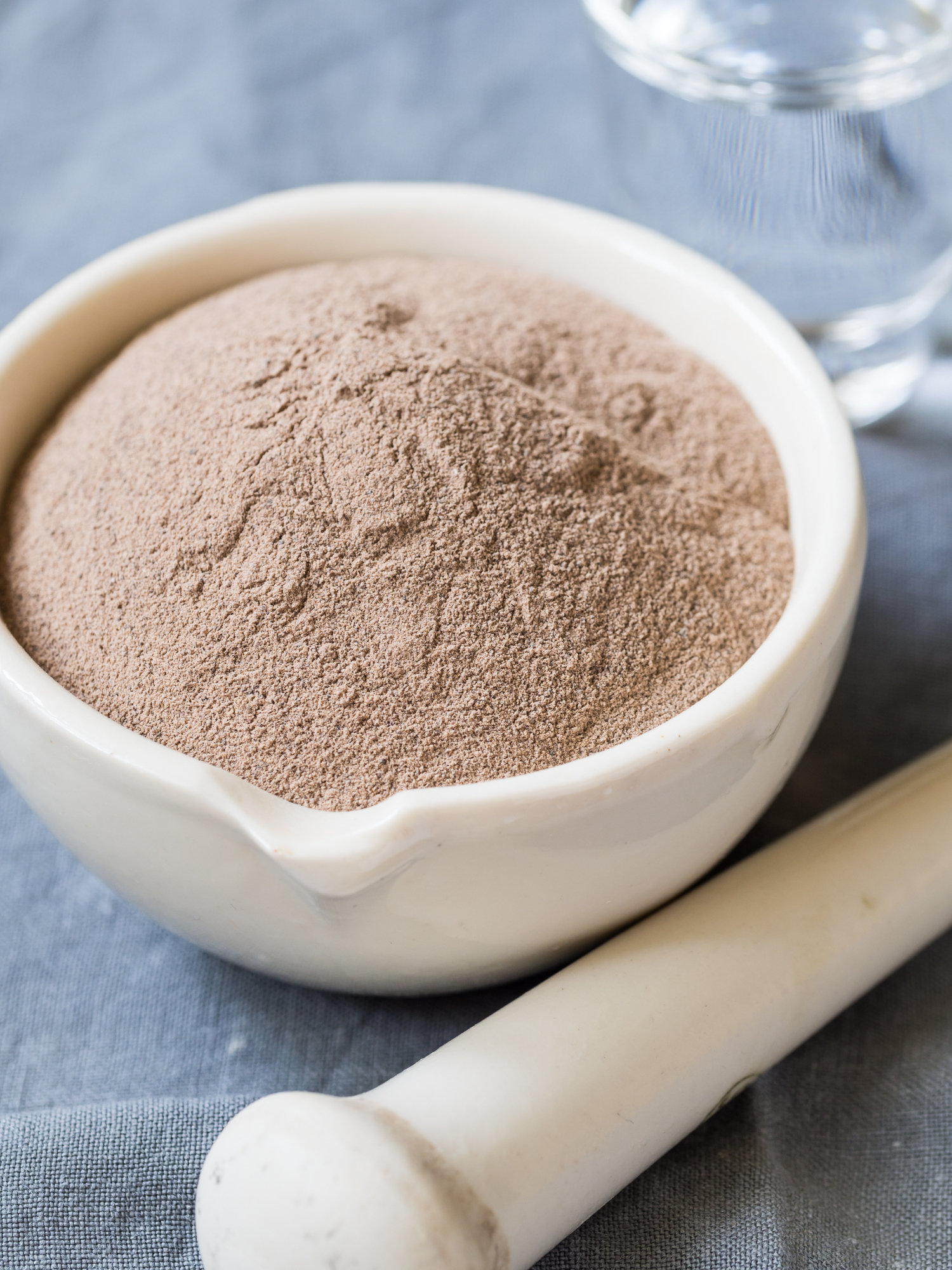
It's made from natural minerals found in the Atlas Mountains of Morocco. One way you can use rhassoul clay is by making a detox hair mask. According to this recipe from Hair Buddha, mix rhassoul clay, coconut oil, argan oil, honey, peppermint essential oil, and water to make your hair mask. Apply the hair mask for a few minutes before your next shampoo session.
See the recipe at Hair Buddha.
Shea butter will moisturize your skin without making it oily or clogging your pores.
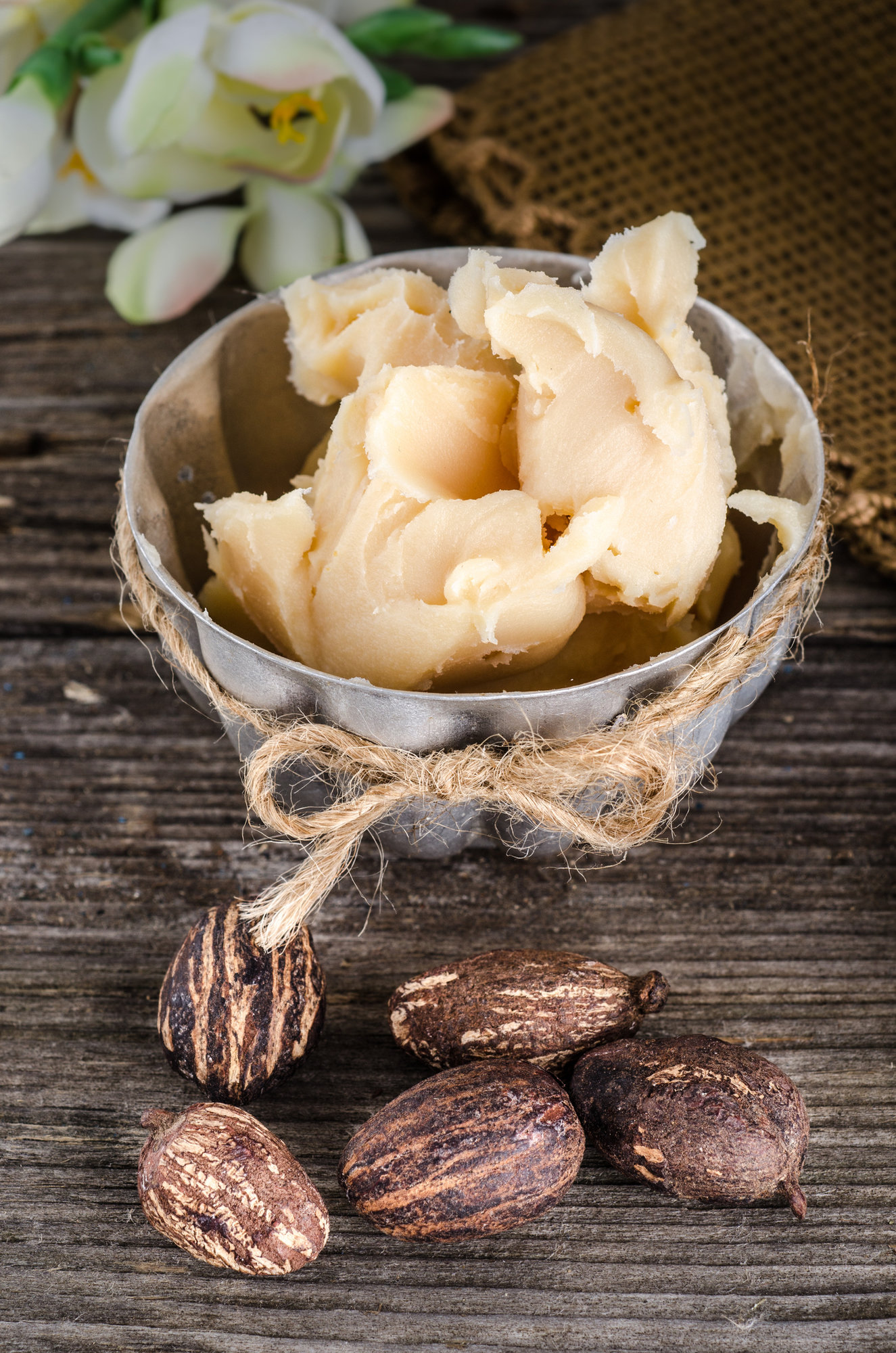
Shea butter originates from the nuts of the shea tree, which is indigenous to Africa. It can help you reduce the appearance of fine lines, stretch marks, and scarring. If you're suffering from chapped and cracked feet, you can make a homemade heel balm with shea butter. This recipe from Hello Glow makes a soothing heel balm with beeswax pellets, coconut oil, jojoba oil, shea butter, and lavender essential oil.
See the full recipe at Hello Glow.
If you’re struggling with acne, marula oil might be a great natural remedy to try.
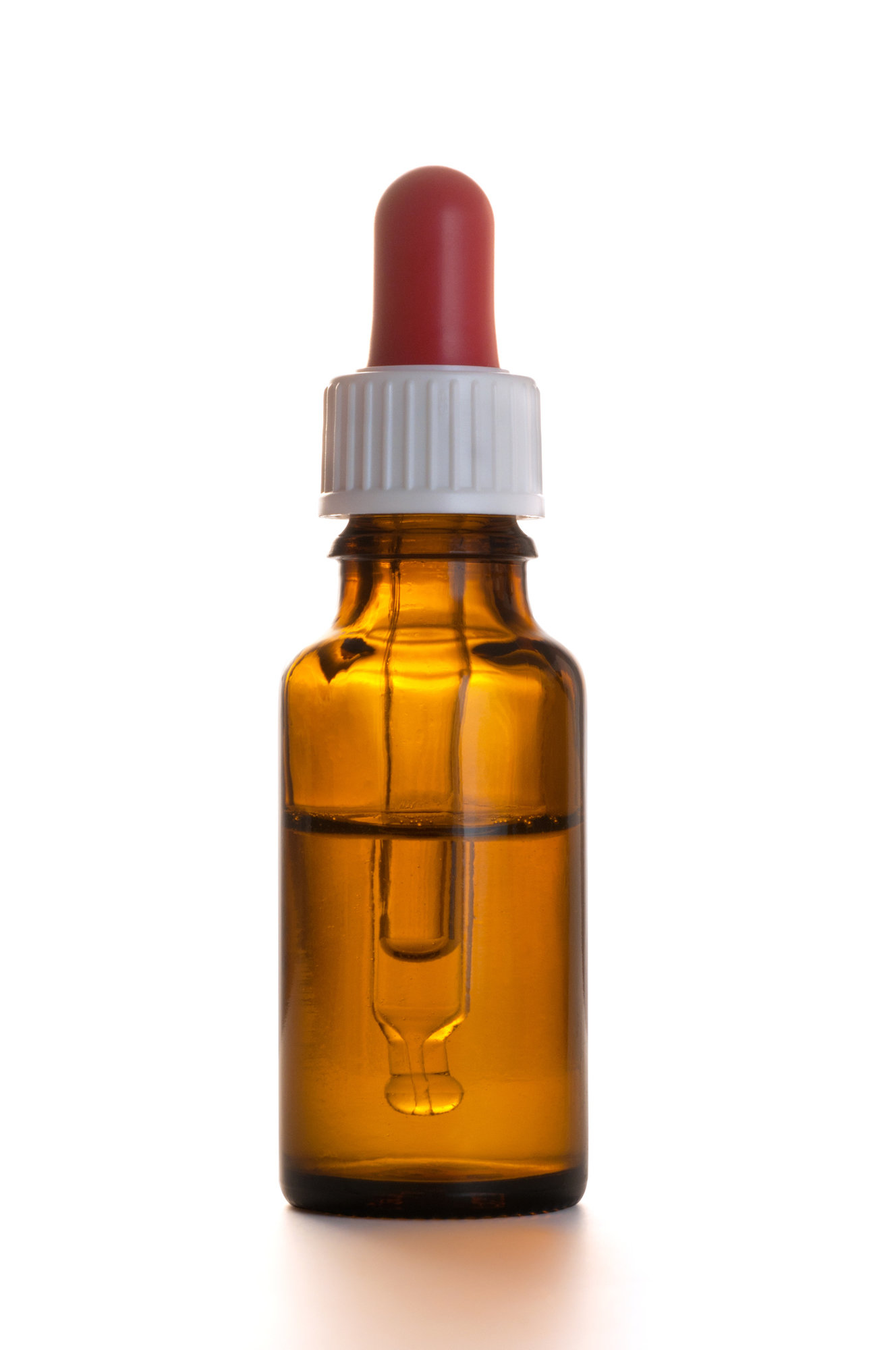
Marula oil comes from the marula tree, which is native to southern parts of Africa. The oil can help clear your pores of dirt, debris, and dead skin cells. You can make a quick facial serum at home using marula oil and other ingredients like pomegranate seed oil, lavender essential oil, and vitamin E oil.
See the full recipe at Prepare & Nourish.
Neem oil is a cosmetic lifesaver that’s typically used for skin and hair.
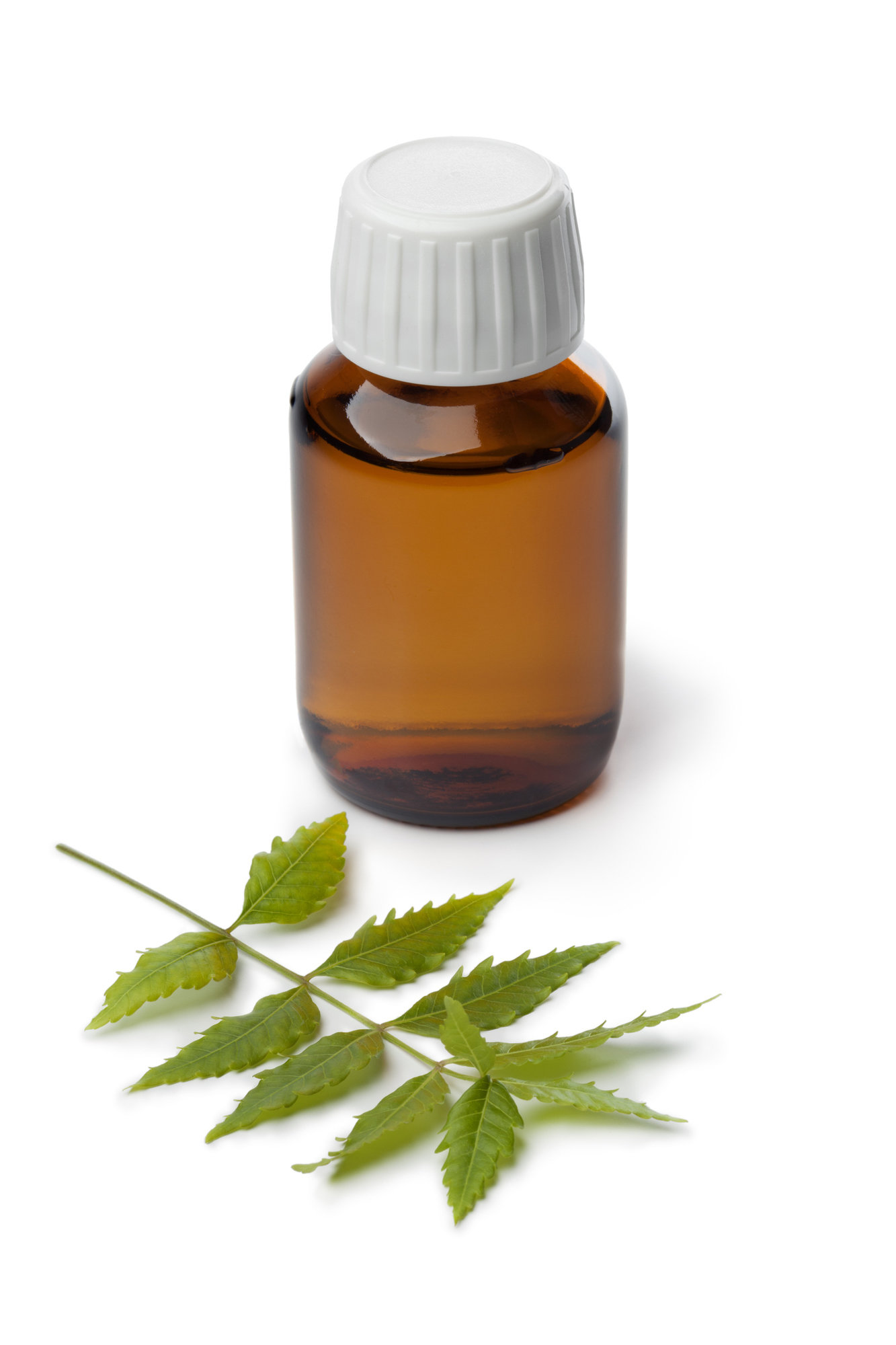
Neem oil comes from the seeds of the neem tree, which is native to India but can also be found in West Africa. Neem oil is full of antioxidants that can fight bacteria and damage from environmental pollutants, and it can even aid the skin in recovering from infections. If you suffer from eczema, you can use neem oil to make a homemade soap.
See the full recipe at Lovely Greens.
One legend says that Cleopatra of ancient Egypt used to bathe in donkey milk to preserve her beautiful skin.
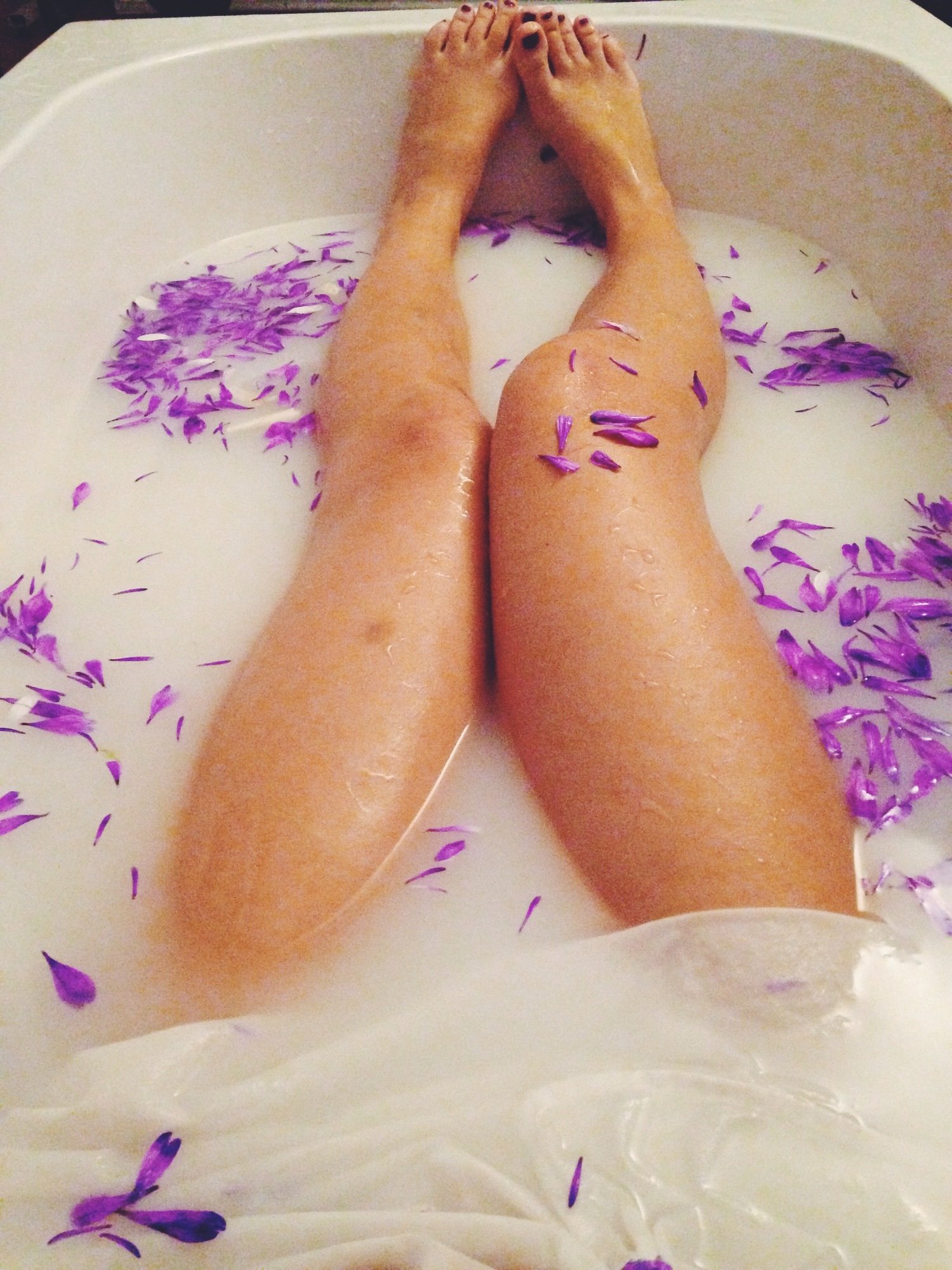
Today, it's proven that milk is actually really good for your skin. The lactic acid in milk helps cleanse the skin while eliminating dead skin cells. You can create your own exfoliating milk bath with a few simple ingredients like sea salt, baking soda, and powdered milk.
See the full recipe at The Spruce.
Yangu oil has properties that naturally provide protection from UV rays.
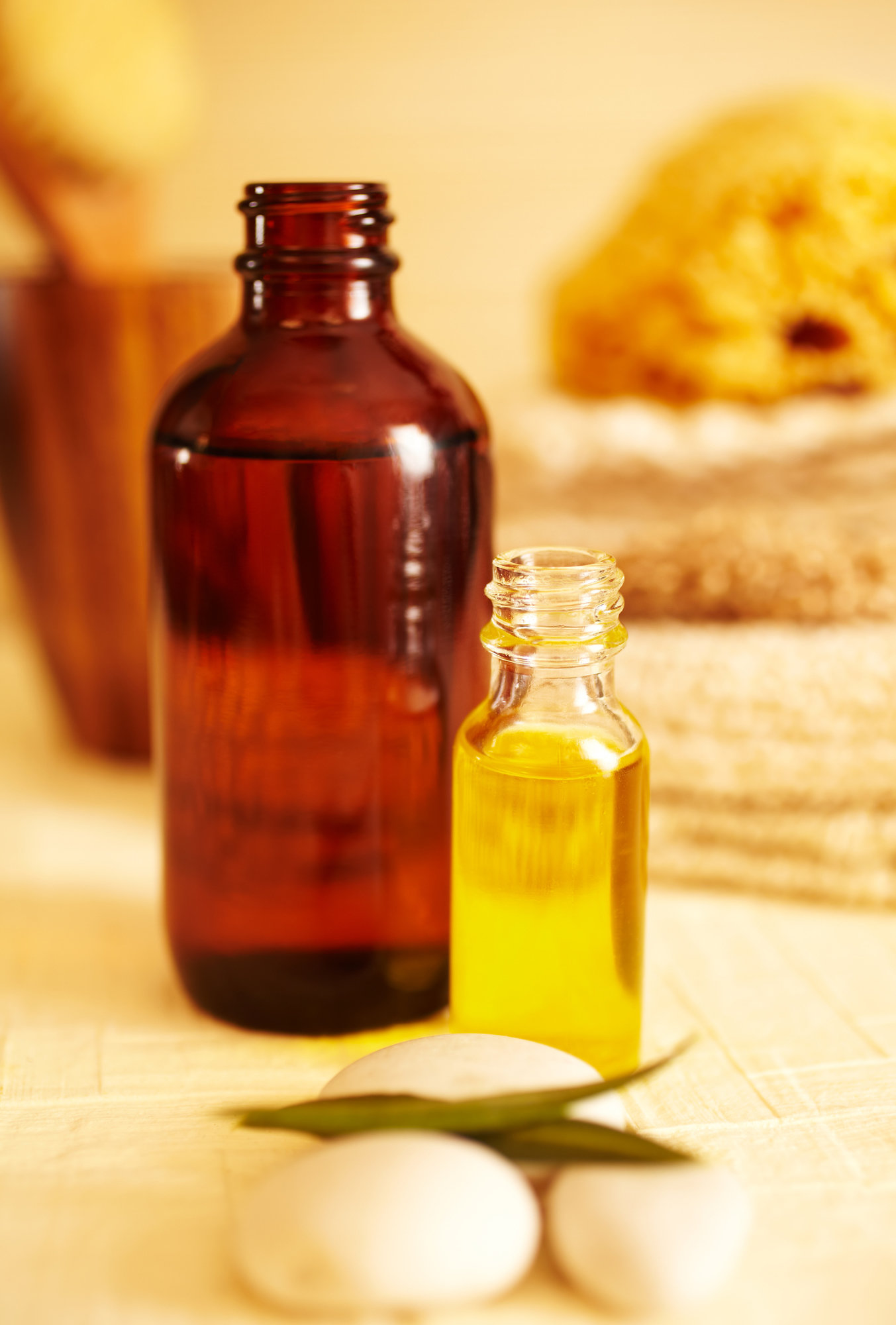
Yangu oil, also known as Cape chestnut oil, comes from the Cape chestnut tree, which is native to South Africa. You can purchase yangu oil and use it to treat your skin or scalp. To use it for your hair, massage a few drops into your scalp to prevent dandruff and scalp flaking. If you want to use it for your skin, try a product that's infused with yangu oil like Hempz Triple Moisture Herbal Whipped Body Creme.
Baobab oil gives the skin elasticity by rejuvenating damaged skin cells and, in turn, preventing aging.
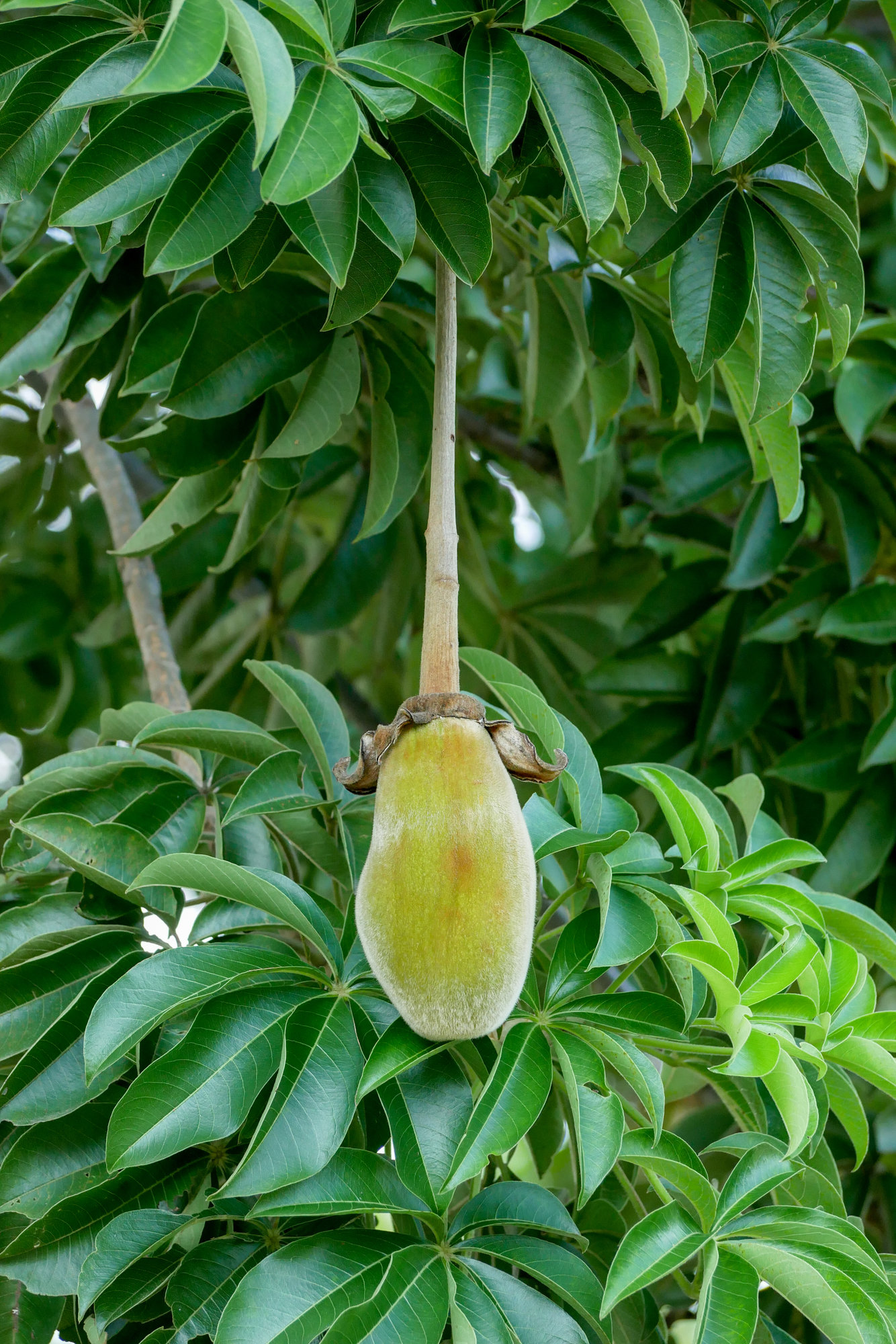
Baobab oil comes from the seeds of the Adansonia tree. The tree, known as the largest succulent in the world, can be found in parts of Africa like Mozambique, Botswana, and South Africa. If you want to fight aging signs under your eyes, you can make a DIY eye cream using baobab oil, coconut oil, beeswax pastilles, shea butter, and vitamin E oil.
See the recipe at Mountain Rose Herbs.
To reap the benefits of rooibos tea, you can drink it or use it as an ingredient in DIY beauty recipes.
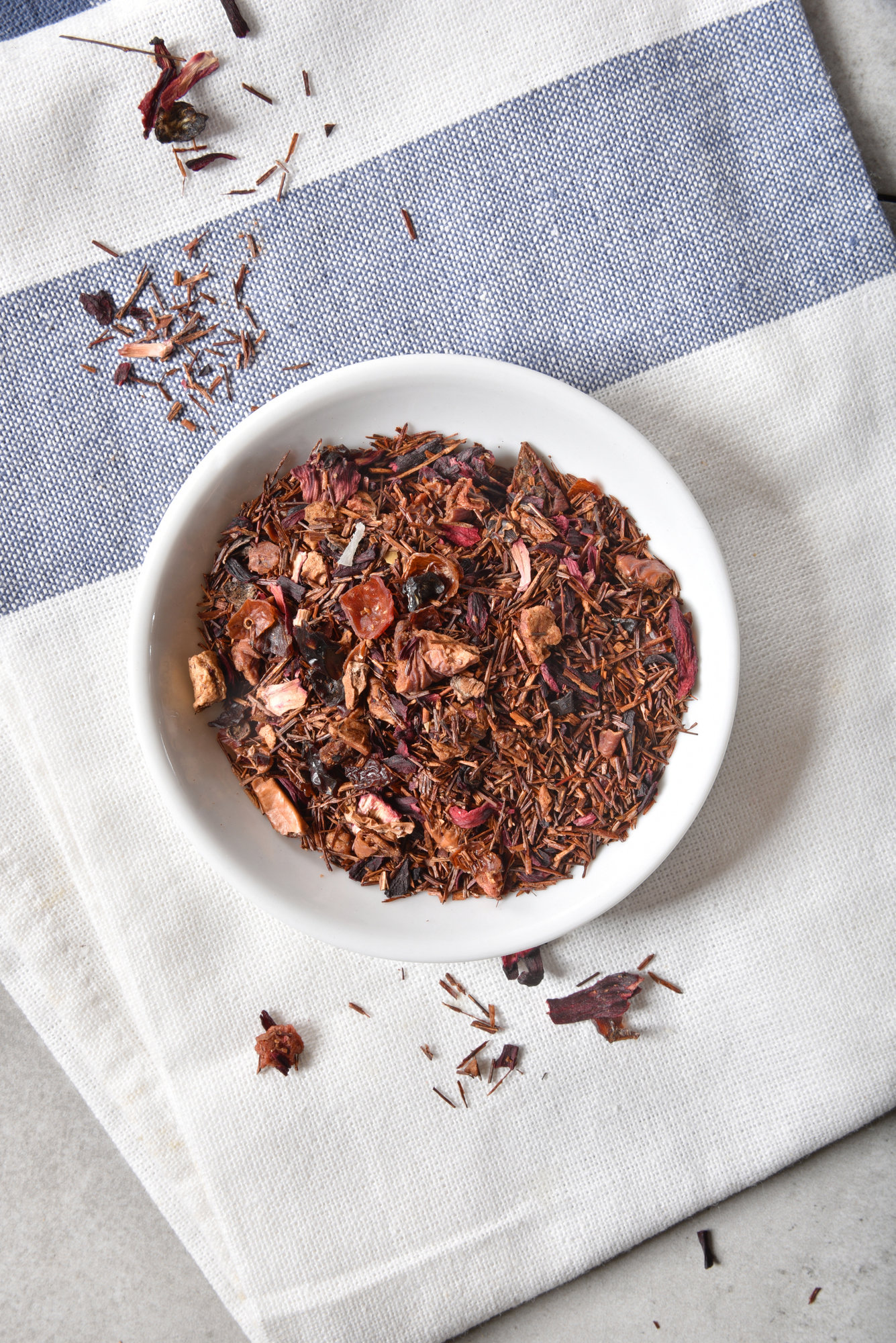
Rooibos tea, sometimes known as red tea, comes from a shrub that usually grows on the west side of South Africa. It's packed with antioxidants that may help boost heart health and prevent cancer. Applied topically, it can improve certain skin conditions like eczema. You can make a natural moisturizer for dry skin using rooibos tea and other ingredients like olive oil, aloe vera, and coconut oil.
See the recipe at Leaf.
Castor oil comes from the seeds of the castor bean, which is indigenous to several parts of the world, including eastern Africa.
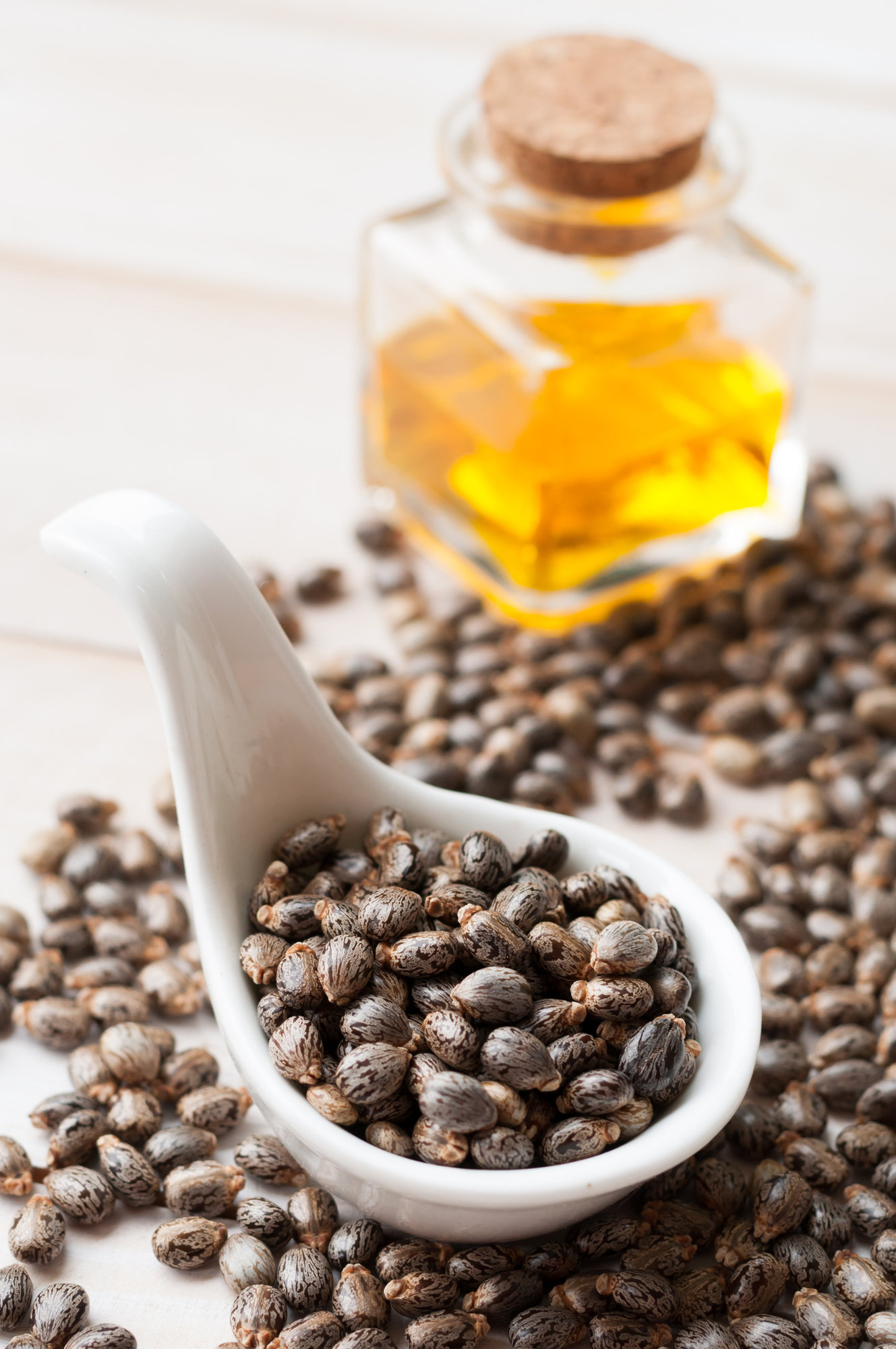
It has several uses, including a natural laxative, moisturizer, pain reliever, and inflammation reducer. It can also work wonders on your hair by acting as a natural conditioner. You can make a quick hair serum by mixing a few drops of castor oil with argan oil and massaging the mixture into your hair.
Sesame oil has so many antioxidants that it can protect the skin from UV rays.
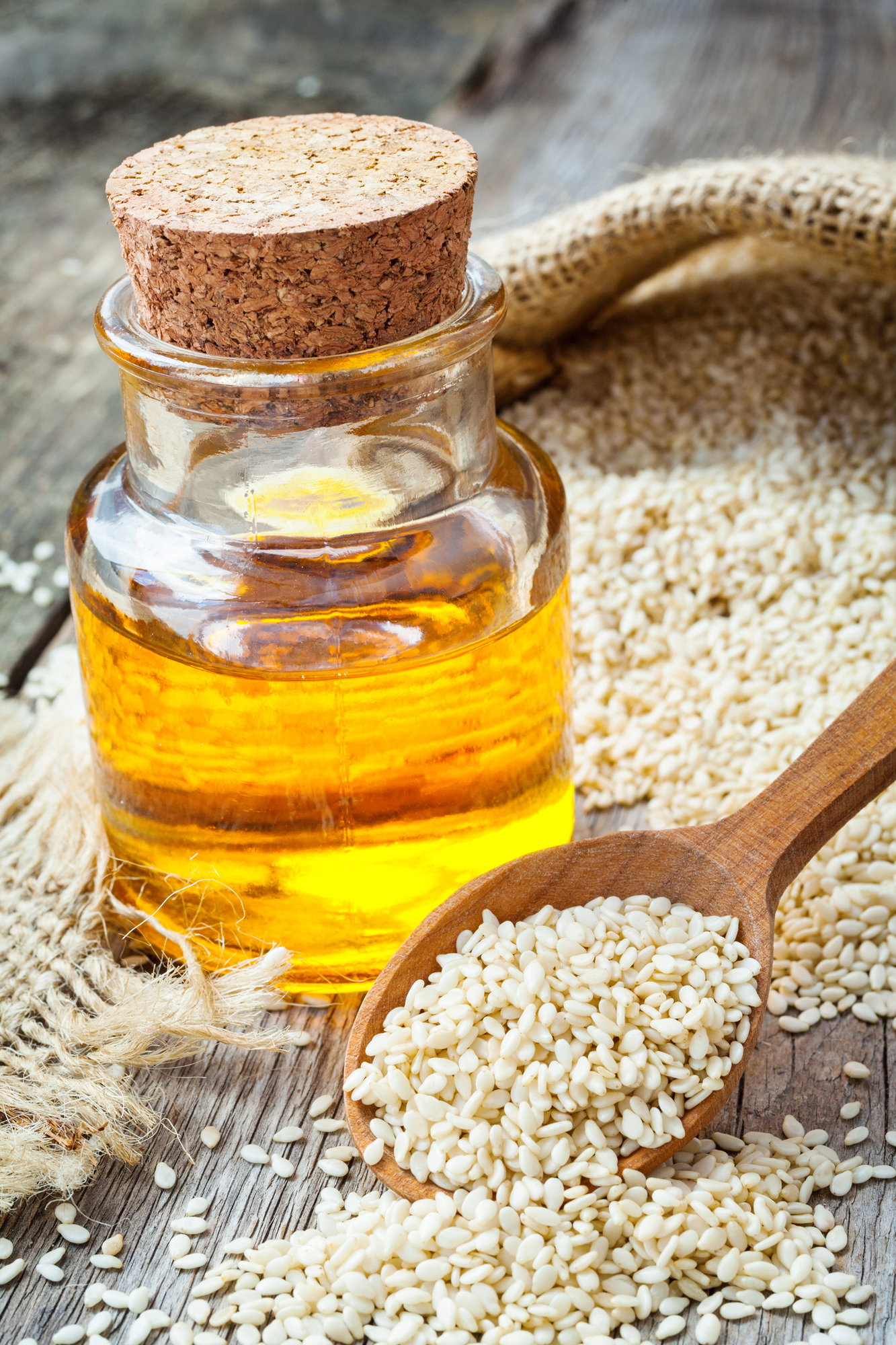
It may also be useful in helping heal wounds and burns. Sesame oil is an ingredient typically used in natural African beauty products. The African country of Tanzania is the largest producer of sesame oil in the world. You can use sesame oil to moisturize your lips by prepping this natural lip gloss from Experience Life.
See the full recipe at Experience Life.
Not only does lavender oil have several beauty benefits, but its aroma also promotes relaxation.
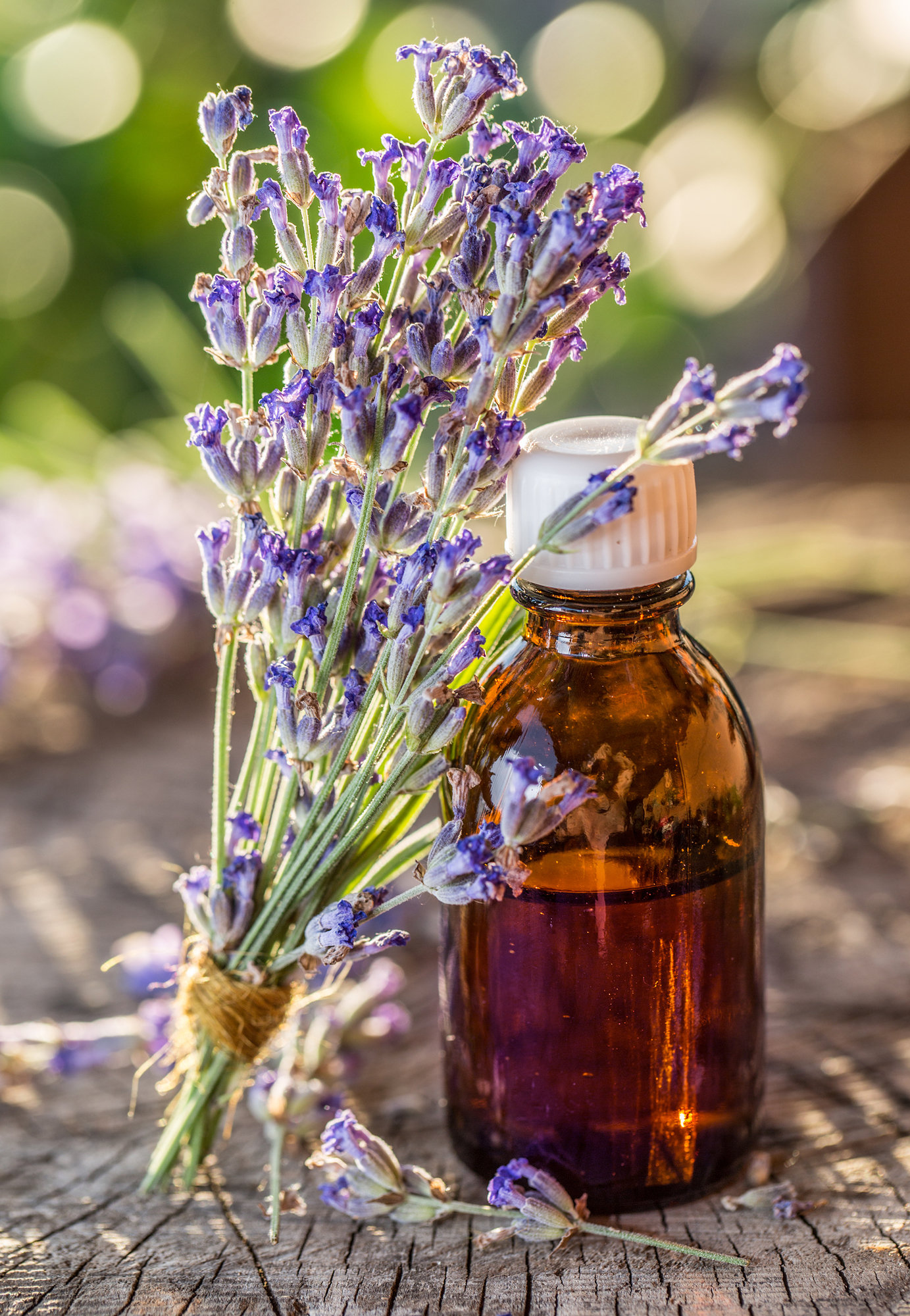
Though Bulgaria is now the largest producer of lavender oil in the world, it's native to northern Africa. It was used by North African women to keep their skin glowing. You can use lavender oil to make a facial clay mask using several ingredients like lavender essential oil, purple Brazilian clay, and argan oil. The clay mask will moisturize your skin while absorbing oil from clogged pores.
See the recipe at Soap Queen.
Due to its antifungal and antibacterial properties, aloe vera is a common ingredient in natural African beauty products.
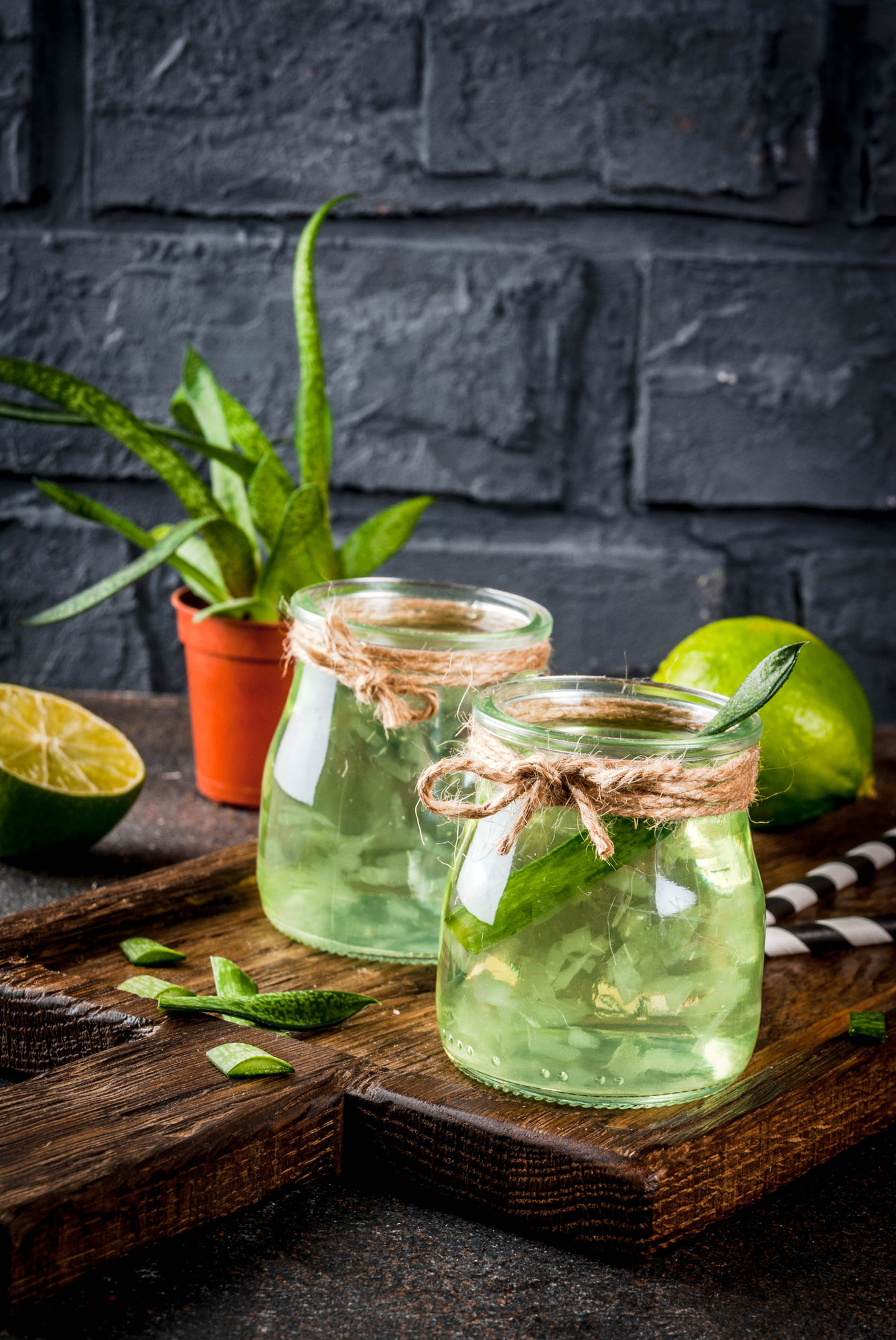
It's even believed that Cleopatra used it as a part of her daily skin routine. Aloe vera is useful in treating skin conditions like psoriasis and acne and also promotes sunburn relief. You can make a simple and quick body or hair moisturizer using gel from an aloe vera plant and a bit of coconut oil.
See the full recipe at Little Green Dot.
Avocado oil works wonders on natural hair.
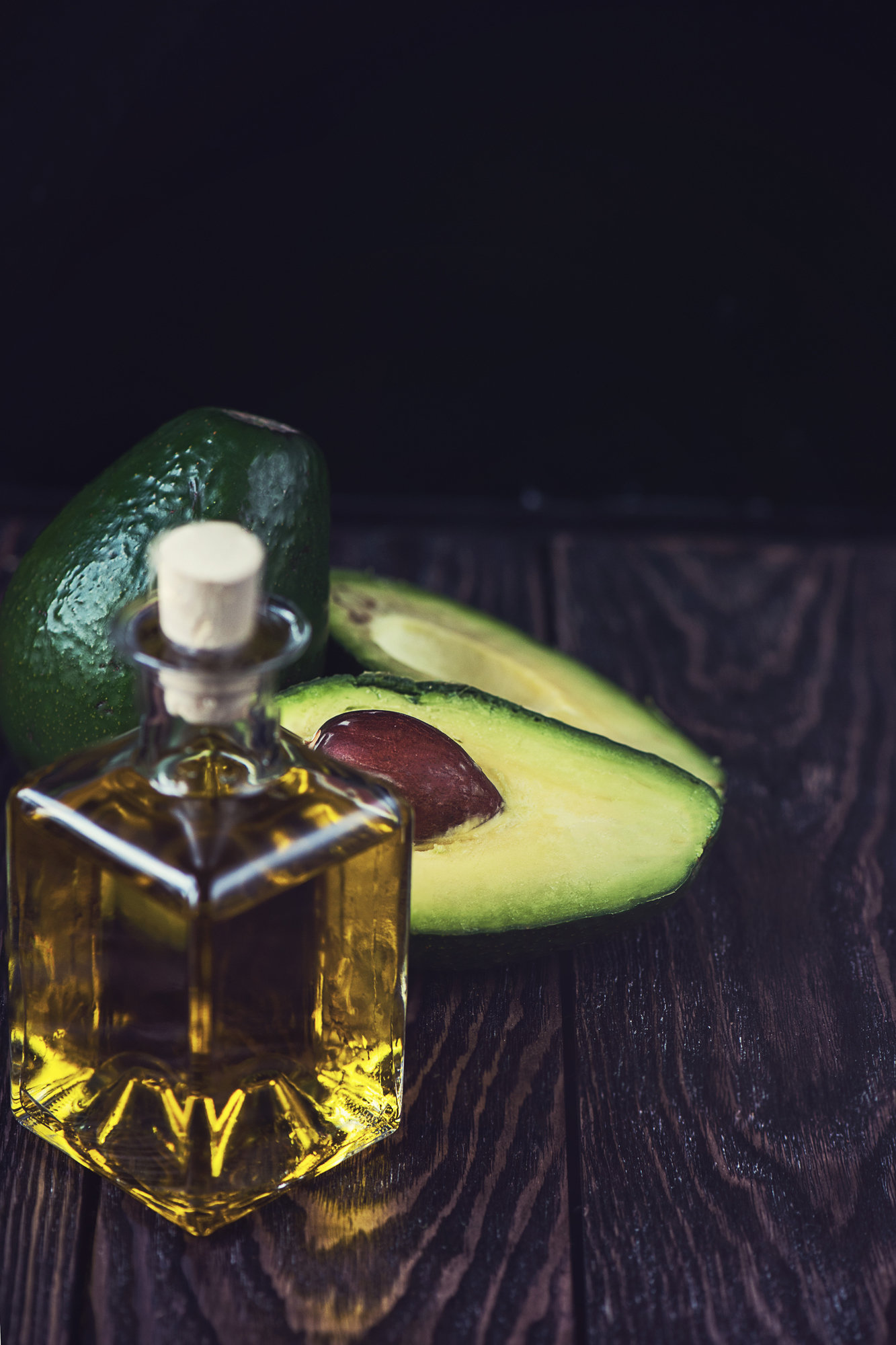
Avocados are a popular horticultural export in countries like Kenya and South Africa. You can use avocado oil on your hair to reap a ton of benefits. It can prevent breakage, is a great moisturizer because of its ability to penetrate the scalp, and is lighter than most oils, so it won't weigh your hair down. You can make a DIY avocado oil hair mask using ingredients like honey, yogurt, and olive oil.
See the full recipe at Superfood Profiles.
Due to its fatty acids, cocoa butter can hydrate the skin and improve elasticity.
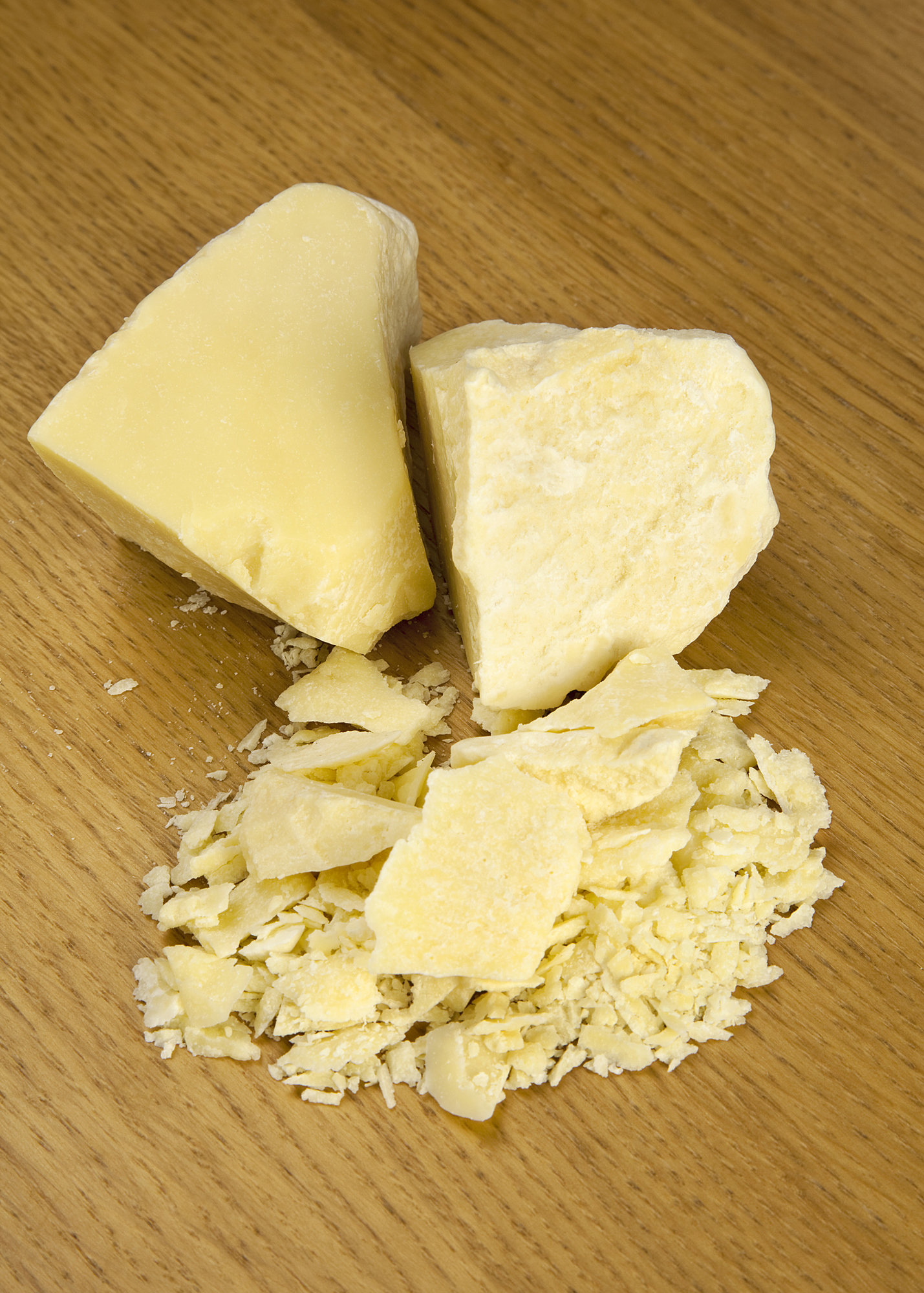
Cocoa butter has a natural chocolatey smell that makes it ideal for cosmetic use. Cocoa butter is often used in African products because of its ability to help the skin hold in moisture by forming a protective barrier over it. It's really simple to make a whipped body butter using cocoa butter and coconut oil.
See the full recipe at Little Green Dot.
Moringa oil can help clear up acne and dark spots, prevent aging, and work as an antiseptic for minor skin conditions.
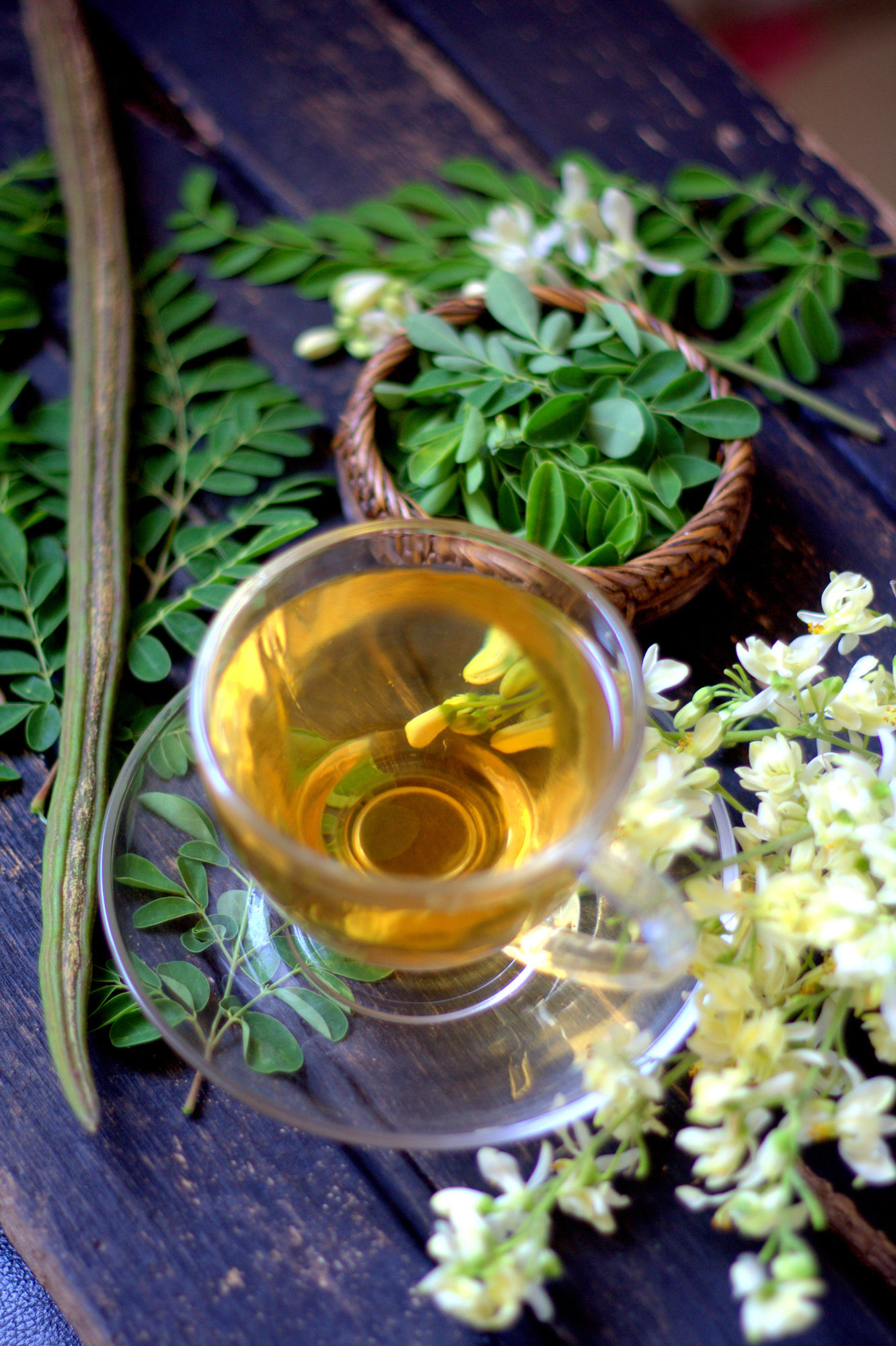
The moringa tree is native to India, but it also grows in eastern Africa. In ancient Egypt, it was used to make perfume and protect the skin. Moringa oil is great for skin care since it softens dry skin and can fight the formation of wrinkles by preventing skin tissue damage and promoting cell growth. To reap the benefits of moringa oil, check out moringa oil-infused products like the Moringa Nourishing Dry Oil for Body and Hair from The Body Shop.
Prickly pear seed oil, sourced from Morocco, will soften your skin while preventing signs of aging.
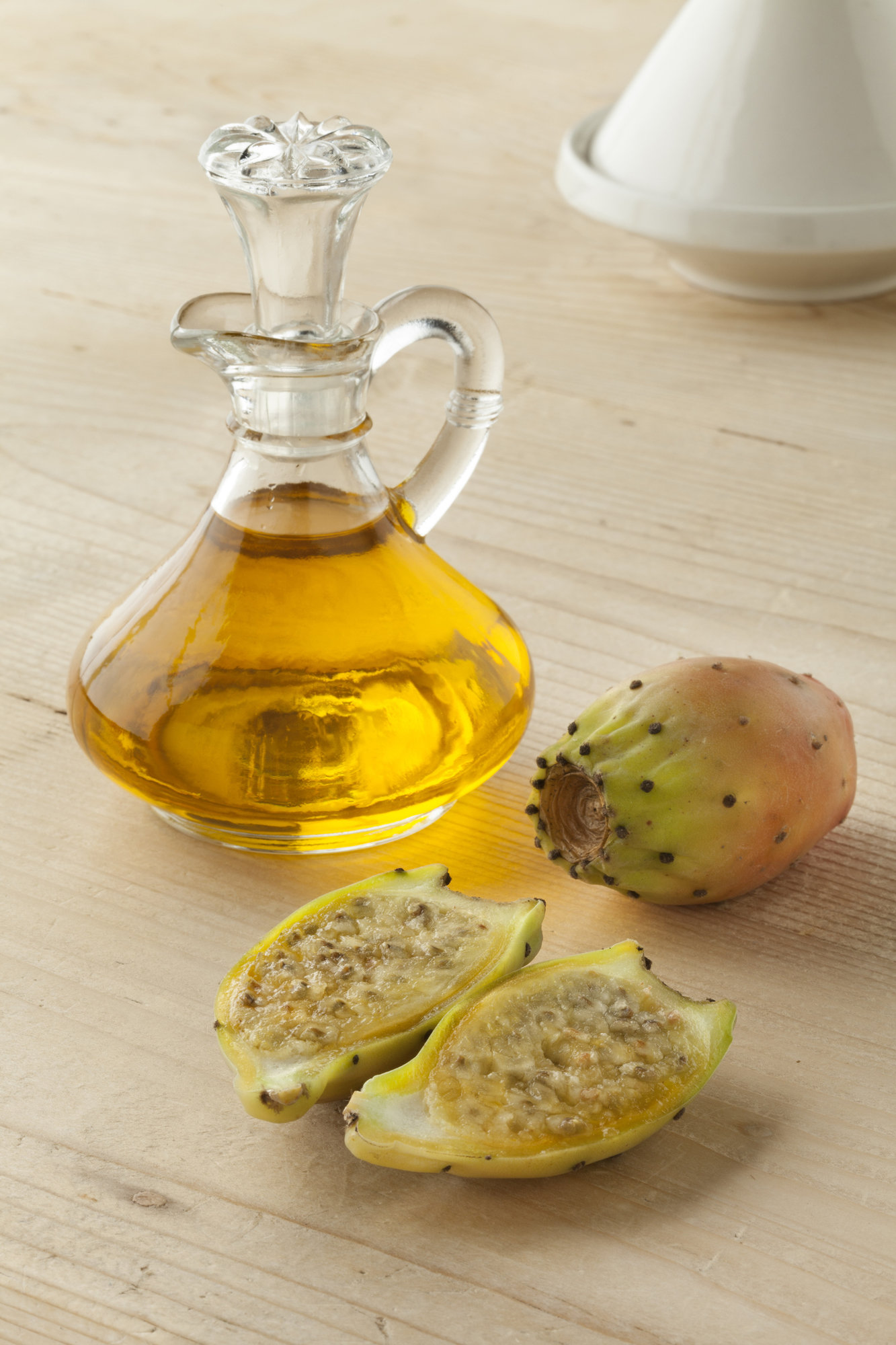
It contains a higher amount of vitamin E than most beauty oils. Vitamin E is an antioxidant that protects your skin cells from free radical damage. If you find a bottle of prickly pear oil, you can mix it with rose-hip oil to prepare an under-eye brightening serum.
See the full recipe at Whipped Green Girl.




